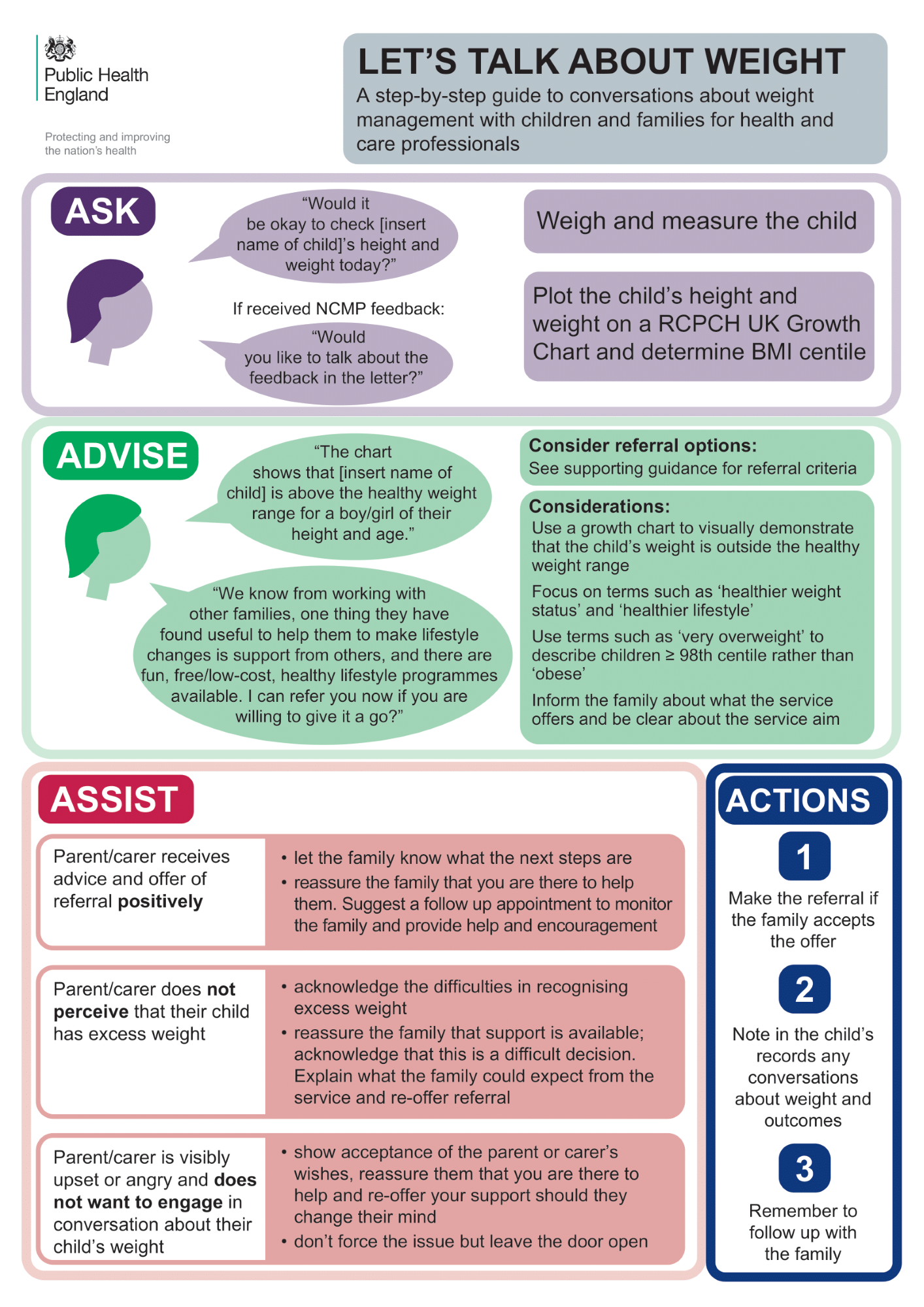Children living with obesity are likely to have experienced and continue to be negatively impacted by weight stigma and discrimination. The most common manifestations of this stigma are bullying, teasing, and victimisation.
This may be perpetrated (knowingly or unknowingly) at school by peers or teachers, and by the media with harmful effects on a child’s current and future physical and mental health, and quality of life.
Conversations with healthcare professionals can also contribute to the stigma that children and families experience.
The importance of language
Every day we choose words that have a profound effect on other people that have the potential to help or harm. The value of good communication in day-to-day practice is important. For many, knowing how to sensitively raise the issue of a child’s weight without causing offence can often be a barrier to having helpful conversations
Obesity UK: Language Matters Report
Obesity UK has published a report and subsequent guidance to help educate healthcare professionals about having conversations with people living with obesity. This report describes how people living with obesity wish to have their condition referred to, and how to engage in compassionate conversations to help improve engagement with healthcare services and prevent further weight stigma. This is recommended reading and can be found here.
Developing confidence in talking about weight …for families
Families may fear that placing too much focus on food or weight or making it a taboo subject will cause disordered eating. They may also avoid discussions with their child as they feel ill-equipped to answer questions about it. It is important for healthcare professionals to be able to support families with these worries.
‘Talking to your child about their weight’ is a strongly recommended and helpful guide for families which can be found here.
This guidance has been developed by the University of Bath and the Office for Health Improvements and Disparities (formerly Public Health England) and supported by specialist groups of the British Dietetic Association.
This guidance gives examples of how caregivers can talk to their children about their weight, answer their questions, how to help their children feel good about their bodies. It also includes tips for managing tricky situations such as constant hunger and when children look for advice online about how to diet or stay slim. This can be after they have left the consultation which may help them to anticipate conversations about their child’s weight.
Healthcare professionals can learn from the content of ‘Talking to your weight about their weight’ and specifically designed e-learning can be accessed here.
Developing confidence in talking about weight …for healthcare professionals
Fear of causing offence is a common factor preventing healthcare professionals from discussing weight with children and their families.
Knowing how to sensitively raise the issue of a child’s weight without causing offence can aid helpful conversations. The quick reference guide in the image below, produced by Public Health England (now the Office for Health Improvement and Disparities). Click on the image to download the PDF version.

More comprehensive guidance for healthcare professionals on ways to open conversations and respond to concerns about working towards a healthier weight can be found here.
This guidance is aimed at providing healthcare professionals with the information and tools needed to:
- Identify children and young people above a healthy weight
- Sensitively discuss weight with families
- Signpost families to support making positive lifestyle changes
- Refer families to tier 2 and tier 3 weight management services
World Obesity have also produced a helpful guidance to help professionals have conversations about weight so as not to contribute further to weight stigma.
“The do’s and don’ts when talking about obesity” recommends that in order to help increase understanding and awareness about the complexities and multiple drivers of obesity, as well as reduce weight stigma, we should all consider the language that we use and the way that we present obesity.
World Obesity take home messages suggest:
Do
â Use people first language
â Adopt positive language about obesity and people with obesity
â Avoid the use of language that is derogatory or pejorative
â Use easy to understand language to illustrate that obesity is a health condition
â Recognise the wider causes of obesity where relevant
â Avoid the use of language that implies individual blame
More information can be found here.

